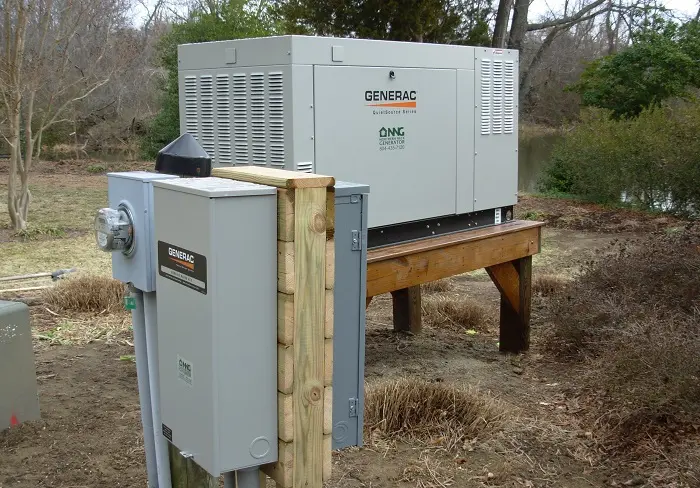When it comes to RVing, having a reliable power source is essential for comfort and convenience. For those with 50 amp RVs, selecting the right generator size is crucial to ensure that all electrical appliances and systems function smoothly. This article will guide you through the process of choosing the appropriate generator size for your 50 amp RV, including considerations for power requirements, types of generators, and essential features.
RV life offers freedom and adventure, but it also requires careful planning, especially when it comes to power supply. A 50 amp RV can draw significant electrical power, particularly if you plan to run multiple appliances simultaneously. Understanding how much power you need and selecting the right generator can make your camping experience enjoyable and hassle-free.
Understanding 50 Amp RV Power Requirements
What Does 50 Amp Mean?
A 50 amp service provides a maximum of 12,000 watts of power, allowing you to run several high-demand appliances simultaneously. This is particularly important for larger RVs, which often come equipped with:
Air conditioners
Microwaves
Refrigerators
Heaters
Entertainment systems
Power Calculation
To determine the power needs of your 50 amp RV, you need to consider the following:
Identify Appliances: List all the electrical appliances you plan to use. Common appliances and their power ratings include:
Air Conditioner: 1,500 – 3,500 watts
Microwave: 1,000 – 1,200 watts
Refrigerator: 200 – 1,000 watts
Electric Water Heater: 1,500 – 2,500 watts
TV/Entertainment System: 200 – 1,000 watts
Calculate Total Wattage: Add up the wattage of all appliances you intend to run simultaneously. For example:
1 Air Conditioner: 2,000 watts
1 Microwave: 1,000 watts
1 Refrigerator: 600 watts
Total = 3,600 watts
Consider Starting Watts: Some appliances, especially motors (like air conditioners), require more power to start than to run. For instance, an air conditioner may need an additional 1,500 watts to start. Always account for starting wattage in your calculations.
Recommended Generator Size
For a 50 amp RV, it’s generally recommended to have a generator that can provide between 5,000 to 7,500 watts of continuous power. This allows for the simultaneous operation of multiple appliances while considering starting wattage. Here’s a quick guide:
5,000 watts: Suitable for minimal use, running basic appliances like a refrigerator and lights.
6,000 – 7,000 watts: Ideal for running an air conditioner, microwave, and additional appliances comfortably.
Types of Generators for RVs
When selecting a generator, consider the following types:
1. Portable Generators
Description: These are the most common types of generators used for RVs. They are versatile and can be moved easily.
Pros:
Cost-effective
Lightweight and portable
Suitable for various applications
Cons:
Noise levels can be higher
Fuel consumption may vary
2. Inverter Generators
Description: Inverter generators are designed for efficiency and quieter operation. They provide clean and stable power, which is ideal for sensitive electronics.
Pros:
Quieter operation
Fuel-efficient
Provides clean power suitable for electronics
Cons:
Generally more expensive than portable generators
Limited power output in smaller models
3. Standby Generators
Description: Standby generators are permanently installed and automatically kick in during power outages.
Pros:
Automatic operation
Provides continuous power
Cons:
More expensive and complex installation
Not portable
Key Features to Look For
When selecting a generator for your 50 amp RV, consider the following features:
1. Power Output
Ensure that the generator provides sufficient wattage to meet your RV’s needs. Look for models that specify both running and starting wattage.
2. Fuel Type
Generators typically run on gasoline, propane, or diesel. Choose a fuel type that best suits your needs and availability while camping.
3. Portability
If you plan to move your generator frequently, opt for a lightweight model with wheels and handles for easy transport.
4. Noise Level
Look for generators with a lower decibel rating, especially if you plan to camp in quieter areas. Inverter generators are generally quieter.
5. Runtime
Consider how long the generator can run on a full tank. Longer runtimes mean fewer refueling stops.
6. Outlets
Ensure the generator has enough 120V outlets and at least one 50 amp outlet for your RV connection.
7. Safety Features
Look for generators with automatic shut-off features, low-oil shutdown, and circuit protection to prevent damage to your appliances.
Installation and Usage Tips
Setting Up Your Generator
Choose a Safe Location: Always set up your generator outdoors, away from windows and doors to avoid carbon monoxide buildup.
Grounding: Follow manufacturer instructions for grounding your generator, especially in wet conditions.
Connect to RV: Use a heavy-duty extension cord or a transfer switch to connect your generator to your RV.
Operating Your Generator
Start with a Full Tank: Always fill the generator’s fuel tank before starting.
Monitor Power Usage: Keep an eye on the wattage being used to avoid overloading the generator.
Regular Maintenance: Perform routine checks, including oil changes and air filter replacements, to keep your generator running smoothly.
Conclusion
Choosing the right generator for your 50 amp RV is crucial for a comfortable and enjoyable camping experience. By calculating your power needs and considering the type of generator that best fits your lifestyle, you can ensure a reliable power source during your adventures. Always prioritize safety and maintenance to extend the life of your generator and enhance your RV experience.
Related topics:

